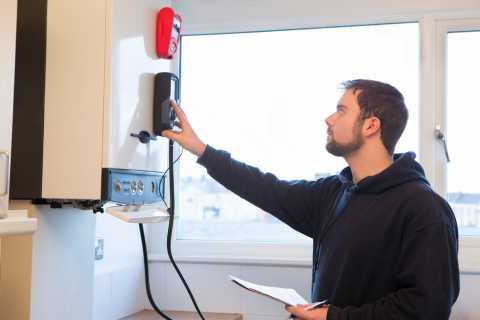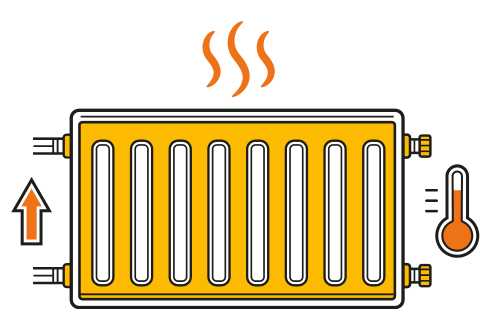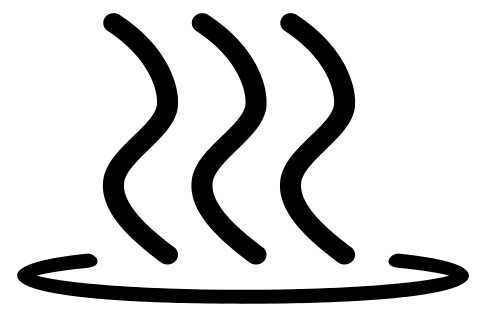Imagine you’re cosying up on a cold winter day, the snow is falling outside, and your home is comfortably warm. But what if this comfort could cost you less?
Understanding the central heating installation cost breakdown can help you make informed choices and save money in the long run.
Our Easy Boilers expert advice will guide you through everything you need to know about central heating cost to install, from property size to boiler types and from geographical location to the complexity of installation.
Get new boiler quotes online >
How Much Does a New Central Heating System Cost? Overview
- What to consider? – Central heating installation cost is determined by property size, number of rooms, boiler type & brand, location and labour costs.
- When does it add up? – Components such as boilers and radiators can range from £30 to over £ 7,000 with complex installations, resulting in higher costs.
- How to make it cheaper – To reduce central heating installation costs select energy efficient components and compare quotes for boiler installation
Central Heating Installation Cost Factors

The cost of installing central heating varies for each home, with central heating installation typically ranging from £3,500 to £7,000. Several factors influence the final cost.
Let’s examine these factors, starting with the size of your property.
Property Size and Number of Rooms
When installing central heating, the size of your home is a significant factor. A combi boiler is fine for 3 bed homes whereas larger homes require more radiators for adequate heating and may necessitate a more powerful boiler.
But what does this mean in terms of cost? For a small house, the distribution pipework alone may cost around £790.
On the other hand, the cost of radiators varies depending on whether they are for a small room (£200 to £250) or a larger room (£195 to £350). Therefore, the size and number of rooms in your property directly influence the overall cost of your central heating installation.
Boiler Types and Brands
Boilers are the heart of any central heating system and a significant cost factor.
The UK market offers a variety of boiler types, including combi, system, and regular boilers. The cost of these boilers can vary widely, for instance, system boiler installations typically range from £1,300 to £4,300.
But how do you decide which type of boiler is right for your home?
Combi boilers are the most prevalent type in UK homes, thanks to their compact size and dual function as a central heating boiler and a highly efficient boiler. They are also generally more cost-effective compared to other boiler types.
Location and Labour Costs
Where you live can play a significant role in your central heating installation costs.
For example, if you live in London, you may have to fork out an extra £200 to £500 for labour costs compared to those located in the North or other parts of the UK.
The average labour cost for central heating installation in the UK ranges from £2,000 to £7,500, depending on factors such as fuel source and boiler location.
Also, the cost to install central heating can be higher in southeast England, with central heating installation costs averaging between £3,500 and £7,000.
Therefore, when planning, it’s important to account for the geographical location of your property and its impact on labour costs.
Complexity of Central Heating Installation
Is your property easy to access, or does it have tight spaces and multiple levels? The complexity of the installation process can significantly impact the total cost of your central heating installation.
If the installation involves extensive piping work or is located in hard-to-access areas, the cost will inevitably rise.
For instance, commercial buildings or large-scale apartment complexes might require a more complex installation process due to their size and specific requirements, leading to higher costs.
Hence, a less complex installation process, with a lower cost to install, usually results in lower overall costs.
Cost of Central Heating Installation Breakdown
Having reviewed the factors influencing the cost of central heating installation, let’s now examine the individual components of a central heating system and their corresponding costs.
A full central heating system, including electric heating systems, gas central heating, oil central heating, and a gas heating system, is composed of:
- A boiler
- Radiators
- Heating controls
- Pipework
These all contribute to the overall cost of installing a central heating system, which can range from £3,500 to £7,000. But what does each component cost, and how does it affect your central heating installation budget? Let’s delve into each one.
Boilers
Boilers are the heart of your central heating system, and their cost can significantly impact your overall installation costs. There are various types of boilers available, such as:
- Combi boilers
- Regular boilers
- Conventional boilers
- Electric boilers
- Storage combi boilers
The cost of these boilers can range widely. For instance, installing a regular boiler can cost anywhere between £2,600 and £4,300.
However, the selection isn’t all about cost. The type of boiler chosen can also impact your energy bills over time.
For example, combi boilers, the most common type in the UK, are generally more cost-effective and energy-efficient. Thus, when selecting a boiler, it’s wise to consider both the gas boiler installation cost and the potential effect on future energy bills.
Location of boiler installation
Depending on where in your home you get the boiler installed, it can be more costly. For example getting a boiler installed in a utility or boiler room is usually cheaper than getting your boiler installed in a bedroom, small cupboard or a basement with limited access, as it may require more time and effort to complete.
Radiators

Radiators, which distribute heat throughout your home, play a significant role in a central heating system. The cost of radiators can vary based on the number and style chosen.
The installation of new radiators when replacing a central heating system can cost upwards of £3,000 unless the radiators are purchased separately.
The price of standard central heating radiators can vary significantly. Generally, it can range between £20 and £100.
Moreover, the number of radiators installed will increase the cost proportionately. Therefore, when planning for central heating installation, it’s essential to factor in the cost of radiators.
Hot Water Cylinders
Hot water cylinders are an essential part of some central heating systems. They store and heat domestic hot water before providing it to hot water outlets.
The cost of hot water cylinders can range from £300 to £1,500. The cost can vary depending on the type and material of the cylinder.
For instance, the cost for unvented hot water cylinders is estimated to be between £400 and £1,300. Hence, if your central heating system requires a hot water cylinder, remember to account for this cost.
Heating Controls
Heating controls are another key component of a central heating system. They allow you to regulate the temperature in your home and can help improve the efficiency of your heating system.
There are traditional and modern heating controls available. Modern alternatives include zonal heating systems and wireless room thermostats.
The average cost of energy-efficient heating controls, such as smart thermostats, is about £275, including installation. Hence, when planning a central heating installation, remember to account for the cost of heating controls.
Tips for Reducing Central Heating Installation Costs
We’ve examined the cost factors and components of central heating installation, but what if you’re working with a tight budget? Fear not, as we have some effective strategies to help reduce your central heating installation costs.
First, choosing energy-efficient boilers and components can lower your energy bills and result in more efficient use of central heating. Next, comparing quotes from several installers can help you secure a competitive rate and ensure you get good value for your central heating installation.
Energy-Efficient Components
Opting for energy-efficient components can be a game-changer when it comes to reducing your central heating installation costs. Some energy-efficient components to consider include:
- High-efficiency boilers
- Programmable thermostats
- Insulated pipes
- Energy-efficient radiators
These components are designed to minimise energy consumption and associated costs, making them a smart investment.
From high-efficiency boilers to smart thermostats, these energy-efficient components not only reduce your installation cost but also help lower your energy bills in the long run.
Some examples of energy-efficient components to consider during your central heating installation planning are:
- High-efficiency radiators, which can offer up to 50% greater energy savings compared to standard radiators
- Smart thermostats, which allow you to control your heating remotely and optimise energy usage
- Insulation, which helps to retain heat and reduce energy loss
- Energy-efficient boilers, which are designed to maximise heat output while minimising fuel consumption
Considering these energy-efficient components can have a significant impact on your energy consumption and savings.
Comparing Quotes and Installers
Another effective strategy to minimise your central heating installation costs is to compare quotes from multiple installers. This can help you find the most advantageous offer and ensure you are getting a fair price.
When choosing a central heating installer, it’s important to prioritise expertise and knowledge. You should get quotations from at least three heating engineers to increase the chances of finding the ideal individual for the task.
By comparing quotes, you can identify the most cost-effective option and maximise your savings.
Central Heating Installation Process and Timeframes
Having covered the costs involved in central heating installation and the strategies to minimize them, let’s now discuss the actual installation process. What does it involve, and how long does it take?
A qualified installer usually visits your property to assess the work needed. The installer then provides a quote for the total cost and estimated completion time. But let’s examine the steps involved in the process and the typical timeframes.
Steps Involved in Installation
The process to install central heating involves a series of steps, ensuring that central heating installed is efficient and effective:
- Selecting the optimal central heating system
- Devising a central heating map
- Installing radiators and laying pipes
- Installing the boiler
- Testing and commissioning the system
Each step involves a range of tasks, from creating a central heating map to determine the positioning of the new boiler and other components, to testing the system for proper functioning and efficiency. Hence, understanding each step of the process is important when planning a central heating installation.
Timeframes for Installation
The timeframe for a central heating system installation can vary, depending on the complexity of the installation and the size of the property. Generally, it can take anywhere from a few days to several weeks.
For a small to medium-sized property, typically two heating engineers are needed to install a full central heating system within 2-5 days. However, other factors, such as the type and brand of boiler and the requirement for additional components like radiators and hot water cylinders, can extend this timeframe.
Summary

In summary, installing a central heating system is a significant investment, with various factors influencing the total cost. From the size of your property to the brand of your boiler, every detail can impact your final bill.
However, with careful planning and consideration of energy-efficient options, you can reduce these costs and ensure a warm and comfortable home.
In conclusion, while the idea of installing a central heating system can seem daunting, understanding the cost breakdown and steps involved can help you navigate this process with ease.
So whether you’re planning to install a new central heating system or upgrade an existing one, remember that knowledge is power. Equip yourself with the right information and make informed decisions for a cosy and cost-effective home.
Frequently Asked Questions
How much does it cost to get central heating installed UK?
The average cost of installing central heating is between £3,500 and £7,000. This includes the boiler, radiators, pipework, heating controls, hot water storage cylinder, feed and expansion tanks in the loft.
Can I get a government grant to install central heating?
You may be eligible for government grants to cover the cost of installing central heating, through the Energy Companies Obligation (ECO) scheme. In some cases, they can cover the full cost and do not need to be repaid.
How much is a boiler and installation UK?
A new boiler and installation can cost anywhere from £1,500 to £4,000 in the UK in 2024. This price depends on the size and type of boiler you opt for.
How much does it cost to replace central heating pipes UK?
Replacing central heating pipes in the UK can cost anywhere between £500-£2,000, depending on the complexity of the job.
What are the main factors that influence the cost of central heating installation?
The cost of central heating installation is affected by several factors, such as the size of the property, type and brand of the boiler, location, and complexity of the process.